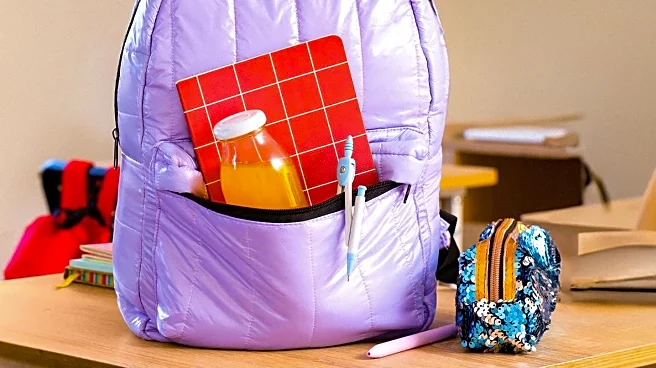What's Happening?
New York University (NYU) and The New School have initiated free stores aimed at reducing dorm room waste. The initiative, led by students and supported by university departments, involves collecting discarded items from dormitories at the end of the school year and making them available for free to students. Shannon Hughes, a senior film major at The New School, spearheaded the project by organizing a pop-up swap shop, where students can pick up items like shower caddies, hangers, and lamps. Similarly, NYU's Swap Shop offers over 5,000 items salvaged from residence halls, including hangers, bed risers, and microwaves. The stores are stocked in cleaned-up spaces and supported by community donations, including high-quality furniture from a closing vintage store.
Why It's Important?
This initiative addresses the significant waste generated by college students, who reportedly produce an average of 640 pounds of trash annually. By repurposing items that would otherwise end up in landfills, the free stores promote sustainability and environmental consciousness among students. The project not only reduces waste but also provides students with necessary items without additional cost, fostering a culture of reuse and recycling. It highlights the role of educational institutions in promoting sustainable practices and the potential for student-led initiatives to drive change in waste management.
What's Next?
The free stores are set to open for a limited period, with The New School's event occurring on a single day and NYU's store operating for a week. As the initiative gains traction, it may inspire similar projects at other universities, encouraging broader adoption of sustainable practices in campus communities. Continued support from students and local businesses could expand the range of available items and enhance the impact of the program. The success of these stores could lead to permanent installations or regular events, further embedding sustainability into campus culture.
Beyond the Headlines
The initiative reflects a growing trend among young people to prioritize sustainability and environmental responsibility. It also raises awareness about the disproportionate burden of waste on lower-income areas, as highlighted in Hughes' class on 'Waste Injustice.' By addressing these issues, the project contributes to broader discussions on environmental justice and the need for systemic change in waste management practices. It underscores the potential for educational institutions to serve as catalysts for social and environmental change.










